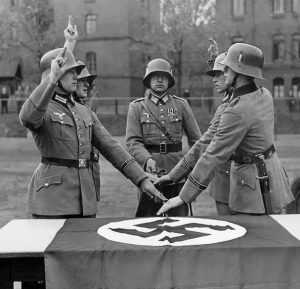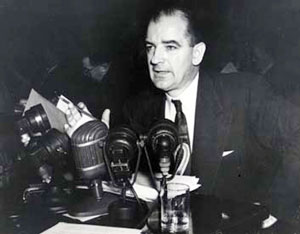
Some say our current troubles with the U.S. can be traced back to 2016, during the presidential campaign of that year. It happened at a Republican rally in Orlando, Fla., where candidate Donald Trump called out to his supporters:
“Raise your right hand,” and then prodded them to recite, “I do solemnly swear that I … will vote on or before the 12 (of November) for Donald J. Trump for president.”
Candidate Trump didn’t describe it as such, but when critics chastised him for demanding unconditional allegiance to his campaign, that is, invoking a loyalty oath, he responded, “They started screaming at me, ‘Do the swearing!’ I mean, they’re having such a great time. … Honestly, I didn’t know it was a problem.”
That’s what America’s now president-elect would like us to think, that Americans espousing his “Make America Great Again” mantra are just having fun at rallies and that such oath-swearing is perfectly harmless. Perhaps during the 2016 election campaign it was harmless.
But I tend to agree with Abe Foxman, the former director of the Anti-Defamation League in the United States; at the time he called Trump’s pledge a “fascist gesture.” And he wasn’t far off the mark.
When Paul von Hindenburg, the president of Germany died in August 1934, Nazi dictator Adolf Hitler combined the positions of chancellor and president and became the führer and Reich chancellor, the head of state, as well as the chief of the armed forces.

Before Hitler took power, German soldiers had announced this oath: “I swear loyalty to the Constitution and vow that I will protect the German nation and its lawful establishments…”
As their führer, Hitler, had them proclaim: “I swear by God this sacred oath, that I will render unconditional obedience to Adolf Hitler, the Führer of the German Reich and people … and will be ready as a brave soldier to risk my life at any time for this oath.”
And Germans didn’t just have to pronounce this once in their lifetimes; they had to proclaim it publicly at a ceremony every year!
Perhaps an innocent pledge to some, but to American journalist William Shirer (author of The Rise and Fall of the Third Reich), the oath was more ominous. “It enabled an even greater number of officers,” he wrote, “to excuse themselves from any personal responsibility for the unspeakable crimes which they carried out on the orders of (Hitler) whose true nature they had seen for themselves.” In other words, oath superseded any form of conscientious objection.
Now, if you think such corruption of a national oath is limited to Hitler’s Third Reich, think again. In the early 1920s, during what’s known as the original Red Scare in the U.S., then president Woodrow Wilson’s administration feared labour radicalism and left-wing revolution and passed laws criminalizing radical beliefs and actions, banning the display of red communist flags and demanding that teachers sign loyalty oaths declaring they would not teach un-American doctrines.
Wilson announced that he would not tolerate anyone who would “inject the poison of disloyalty into our most critical affairs.”
Interestingly, just as the Second World War ended, what had previously been known as The U.S. Flag Code, officially became The Pledge of Allegiance, which had Americans reciting: “I pledge allegiance to the flag of the United States and to the Republic for which it stands…”

In the 1950s, Sen. Joseph McCarthy initiated another Red Scare when he proclaimed, “I have here in my hand a list of 205 names made known to the Secretary of State as being members of the Communist party…” targeting government employees, prominent entertainment figures, academics, left-wing politicians and labour union activists as disloyal.
He demanded they face House Un-American Activities Committee interrogation and then swear oaths of loyalty to America, while disavowing “membership in, affiliation with, or sympathetic association with any organization determined … to be totalitarian, communist, fascist or subversive,” i.e. the Communist party or labour unions.
The closest Canada came to installing loyalty oaths occurred just over 10 years ago when the Stephen Harper Conservatives toyed with their so-called Loyalty Act, requiring parliamentary watchdogs and their employees to disclose previous political activities. The Conservatives called it a commitment to “principles of transparency and accountability”; pollster Allan Gregg called it an “assault on reason.”
Finally, compare the loyalty oath led by candidate Donald J. Trump at his Orlando rally in 2016, with this one from a bygone era: “I swear to devote all my energies and my strength to the savior of our country and am willing and ready to give up my life for him, so help me God.”
It was the oath sworn by Hitler Youth beginning in 1934.